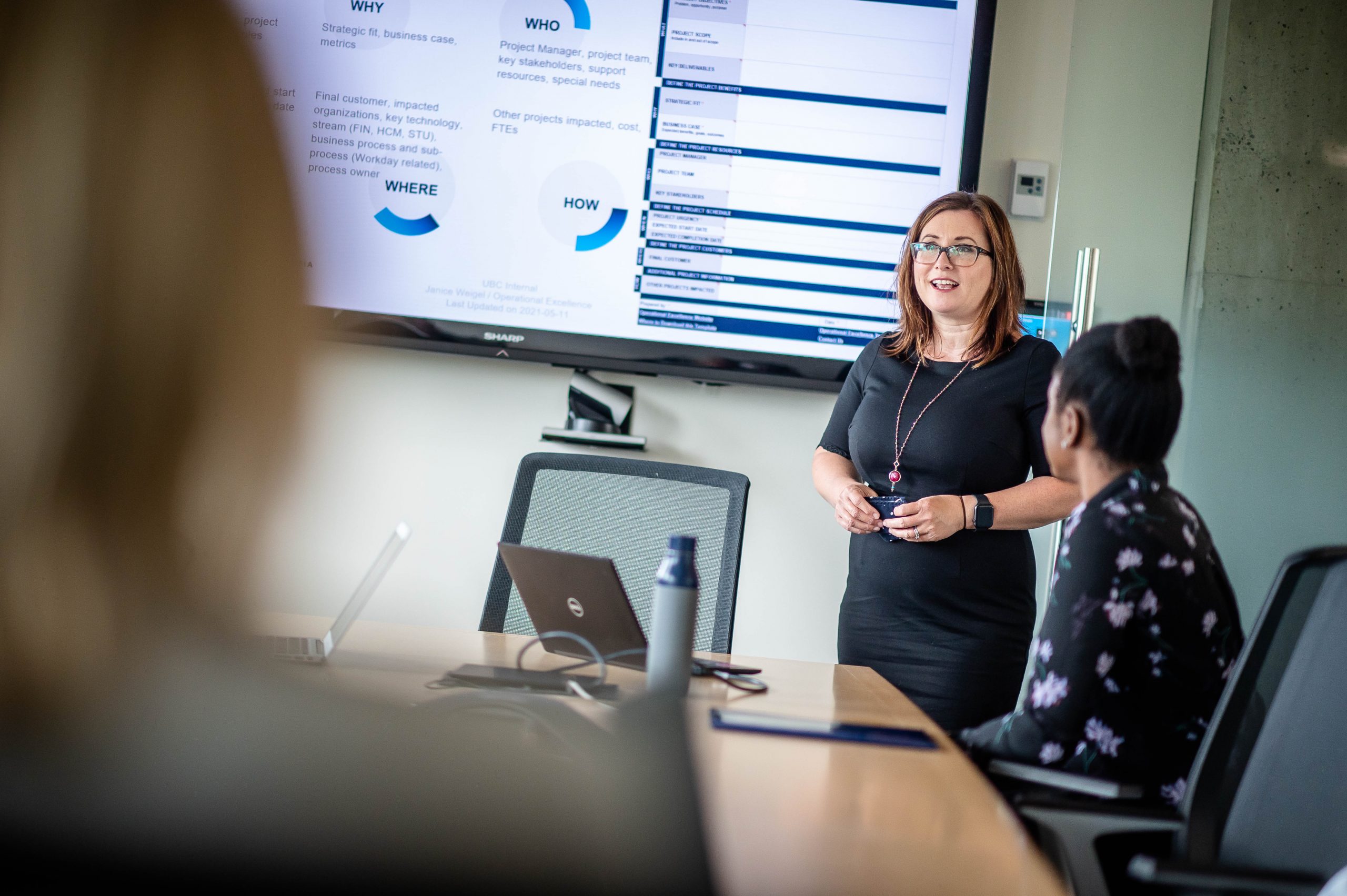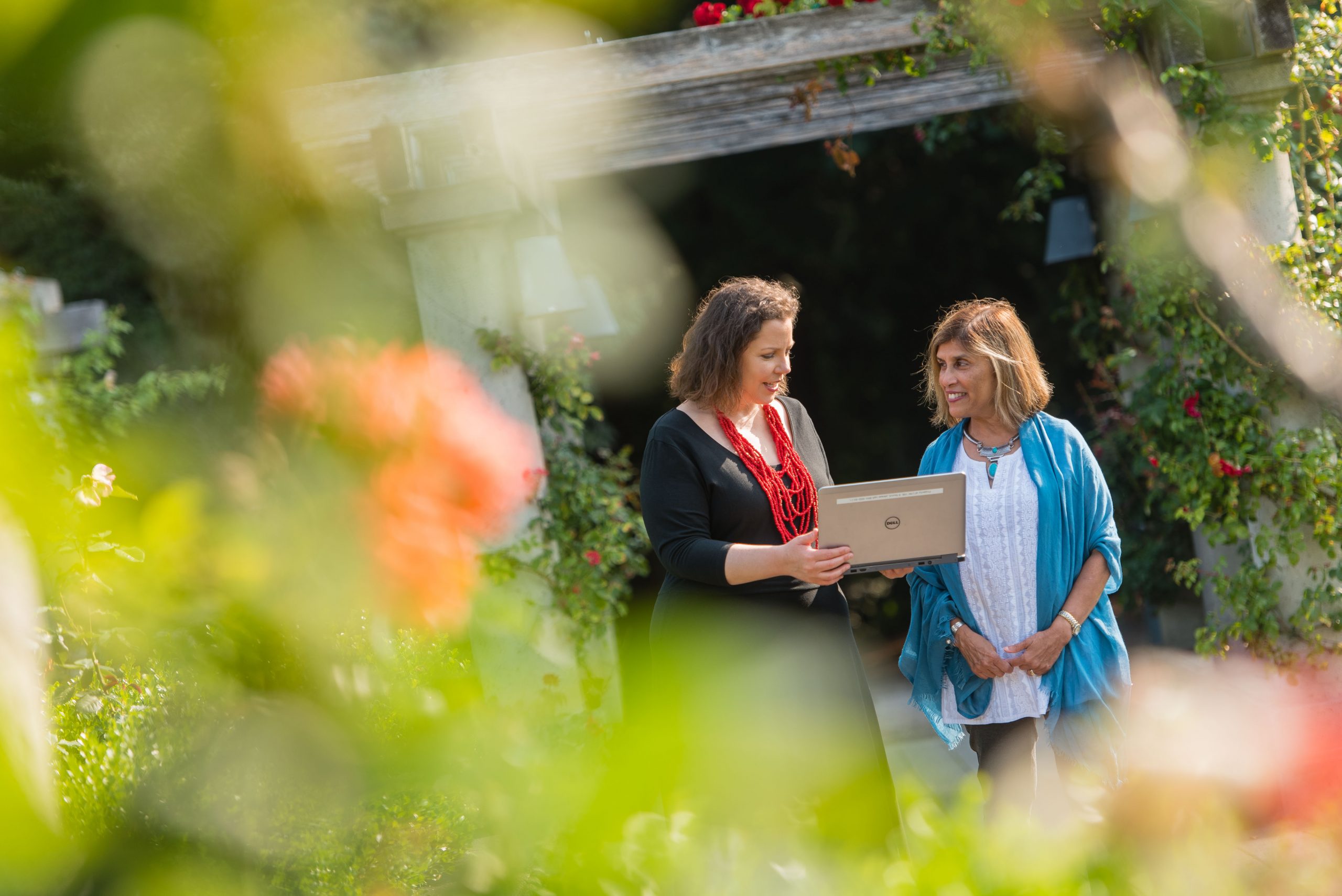
Catalyst #1: I am part of a diverse, inclusive, safe and vibrant workplace
Why this matters
At UBC, we have always prioritized bringing talented people to the university and engaging them so they stay. Collectively, faculty and staff at the university contribute to making UBC an employer of choice. In the future, people will continue to feel inspired by the opportunity to be part of something great by working, teaching and researching here.
Embracing UBC’s values of excellence, integrity, respect, academic freedom, and accountability is important because they underpin all our activities, interactions and decisions — from classrooms and laboratories, to committees and leadership, to our interactions with the world.
Creativity, growth, and innovation are enabled by having a workforce of skilled and qualified people who bring unique perspectives, backgrounds, and experiences representing the full range of race, ethnicity, age, gender identity, ability, background, beliefs and unique traits. Our differences will allow UBC to achieve and sustain academic excellence, and to continue to innovate and transform.
Looking forward, the university is focusing intentionally on building a diverse workforce, and creating an inclusive, flexible, and welcoming environment for all, including Indigenous Peoples and other historically underrepresented groups.
Additionally, UBC recognizes the importance of housing affordability, childcare, and rapid transit options in people’s decisions to join, engage, and stay at UBC now and in the future.
What the numbers said
In UBC’s 2017 Workplace Experiences Survey, 76% of faculty and staff said people treat each other with respect and consideration in the workplace. The score was lower for those who self-identified as a person with a disability, Women who are faculty, Trans, Transgender and gender non-conforming.
Women make up just over one quarter, 26%, of Full Professors, and 16% of Full Professors are Visible Minorities. While UBC equity data indicates mostly positive trends in the representation of equity groups at UBC, there’s still more work to do to cultivate a diverse workplace.
47% of faculty and staff say they “have energy left at the end of the day for their personal lives.”

Launching the Centre for Workplace Accessibility
The centre will help remove barriers, expedite the accommodation process, and minimize the medicalization of disability where possible by identifying resources, supports, or workplace adjustments.

Anti-Racism and Inclusive Excellence
In April 2022, the ARIE task force put forward 54 recommendations to address systemic racism against IBPOC within the UBC community and to promote inclusive excellence.

Maximizing impact of junior faculty
A new pilot program aims to engage junior faculty, primarily cisgender and transgender women, in the early stages of their academic career.
What will UBC look like in 2025?
The faculty and staff population is becoming increasingly diverse, and the workplace is welcoming and inclusive for all, including Indigenous Peoples and other historically underrepresented groups.
Actions
- Implement a strategic, proactive recruiting function – with expansive sourcing solutions and broader outreach partners – that has the mandate to increase the diversity of the workforce.
- Implement the workplace commitments in the Indigenous Strategic Plan and the Inclusion Action Plan.
Faculty and staff are inspired, engaged, and supported to make their best contributions.
Actions
-
- Enhance employee engagement across UBC by continuing to capture and respond to faculty and staff feedback in the Workplace Experiences Survey and focused action plans.
- Continue to invest in areas that shape UBC’s ability to attract and retain faculty and staff on all campuses, such as housing and childcare programs, transportation, as well as building and landscape design that supports wellbeing and inclusion.
- Activate the UBC Wellbeing Strategy for faculty and staff through an approach that reflects the diversity of faculty and staff experiences.
- Embed workplace wellbeing and safety education in workplace learning programs, such as leadership development and orientations.
Faculty and staff have respectful professional relationships and authentic conversations about challenging subjects.
Actions
- Continue the important work to be done in the area of Sexual Assault and Violence prevention.
- Support opportunities for authentic and respectful dialogue as well as conflict literacy.
- Enhance mental health literacy amongst leaders, faculty, and staff to cultivate supportive professional relationships and workplace environments.
Related Plans and Initiatives
Sources
[What the Numbers Say] 2017 UBC Workplace Experiences Survey. (https://focusonpeople.ubc.ca/workplace-experiences-survey/2017-workplace-experiences-survey-results/)
[What the Numbers Say] UBC Benchmark Report 2017-2018. (https://focusonpeople.ubc.ca/reporting/)